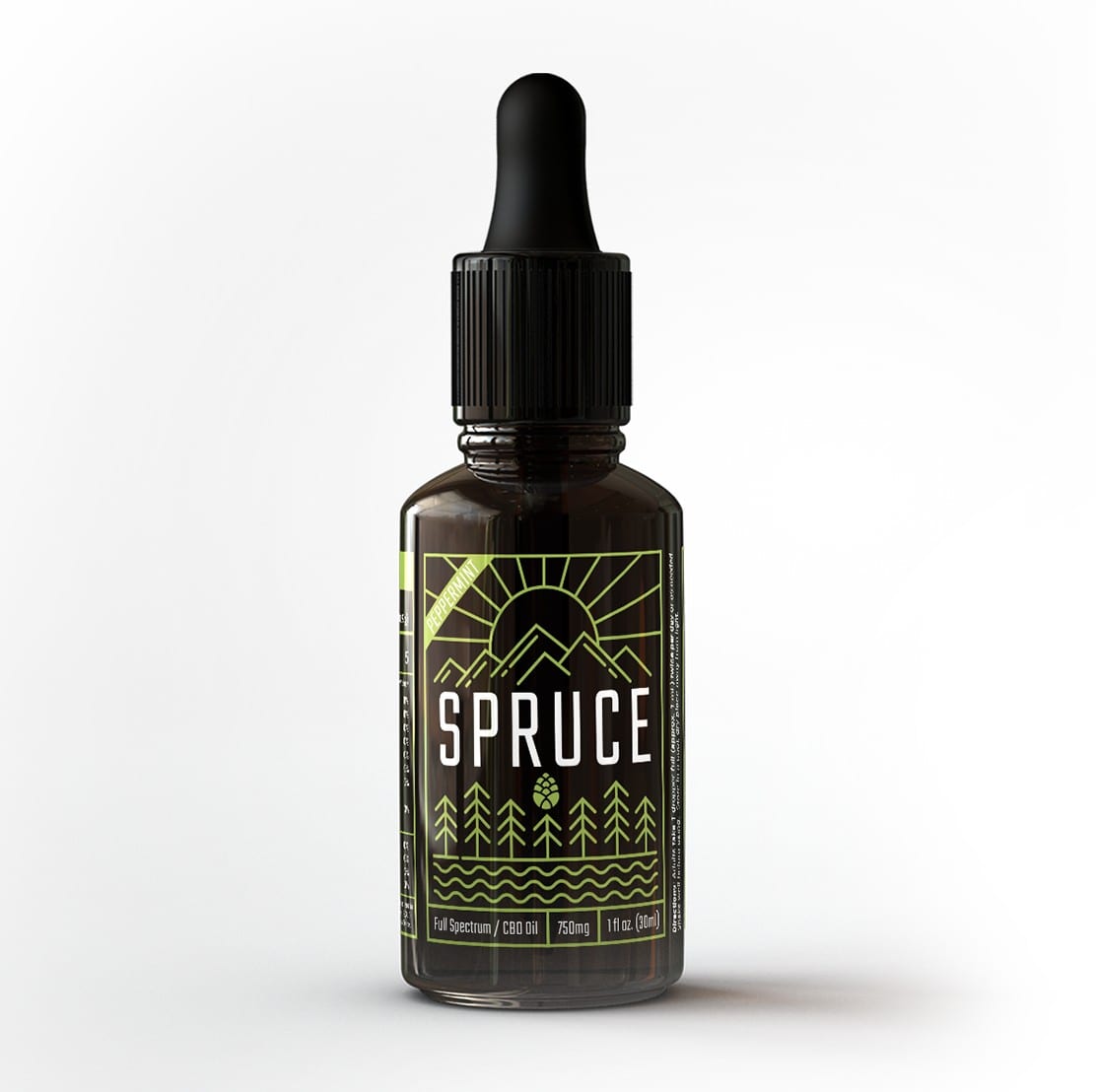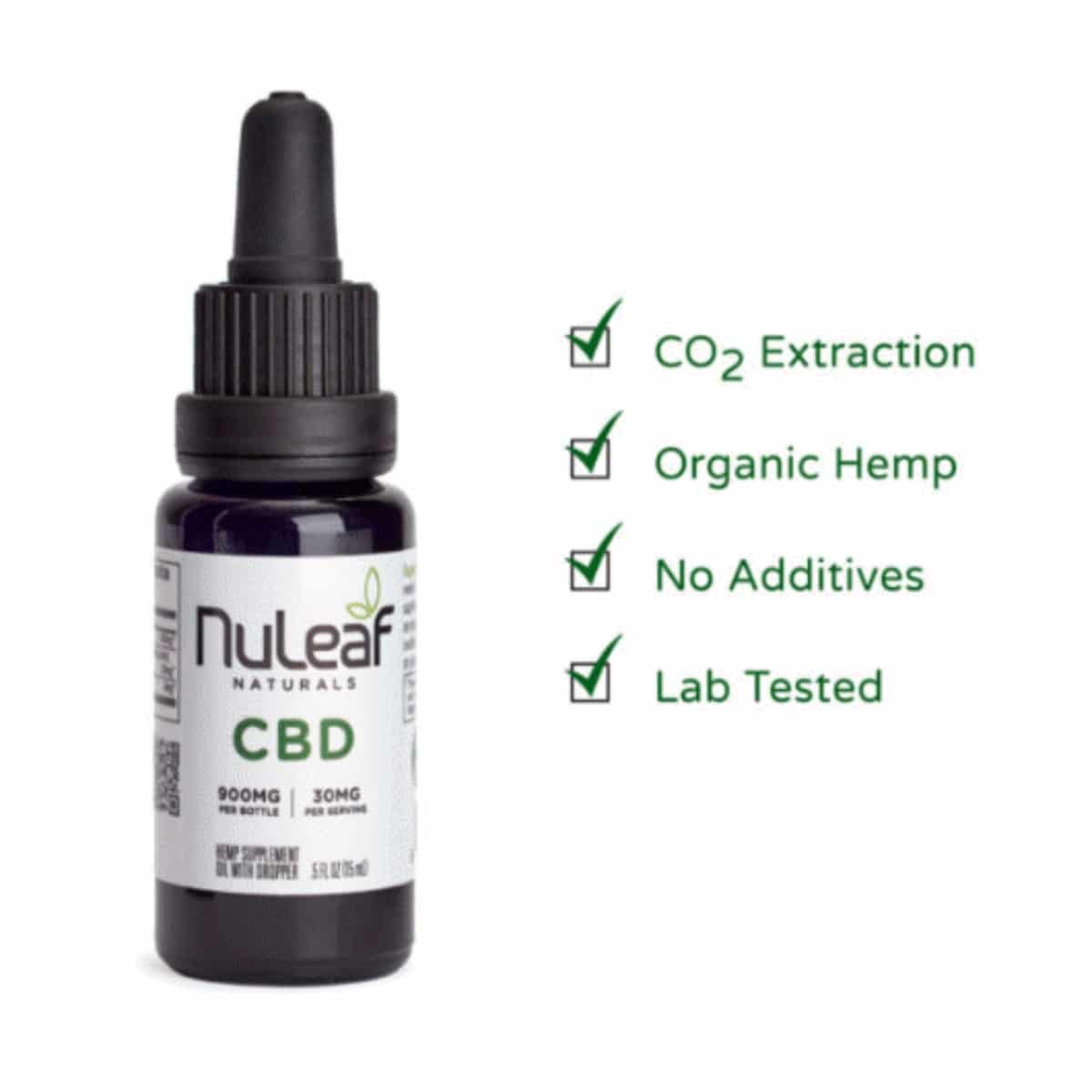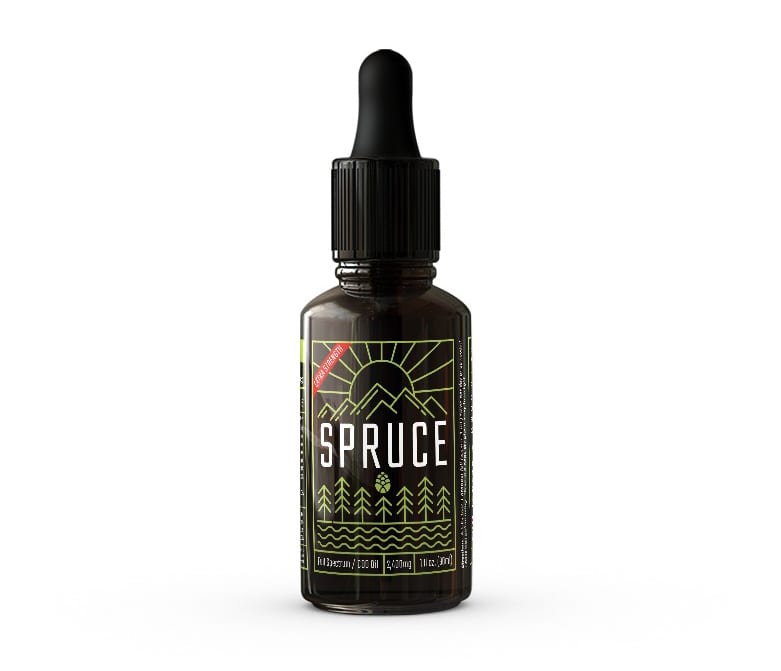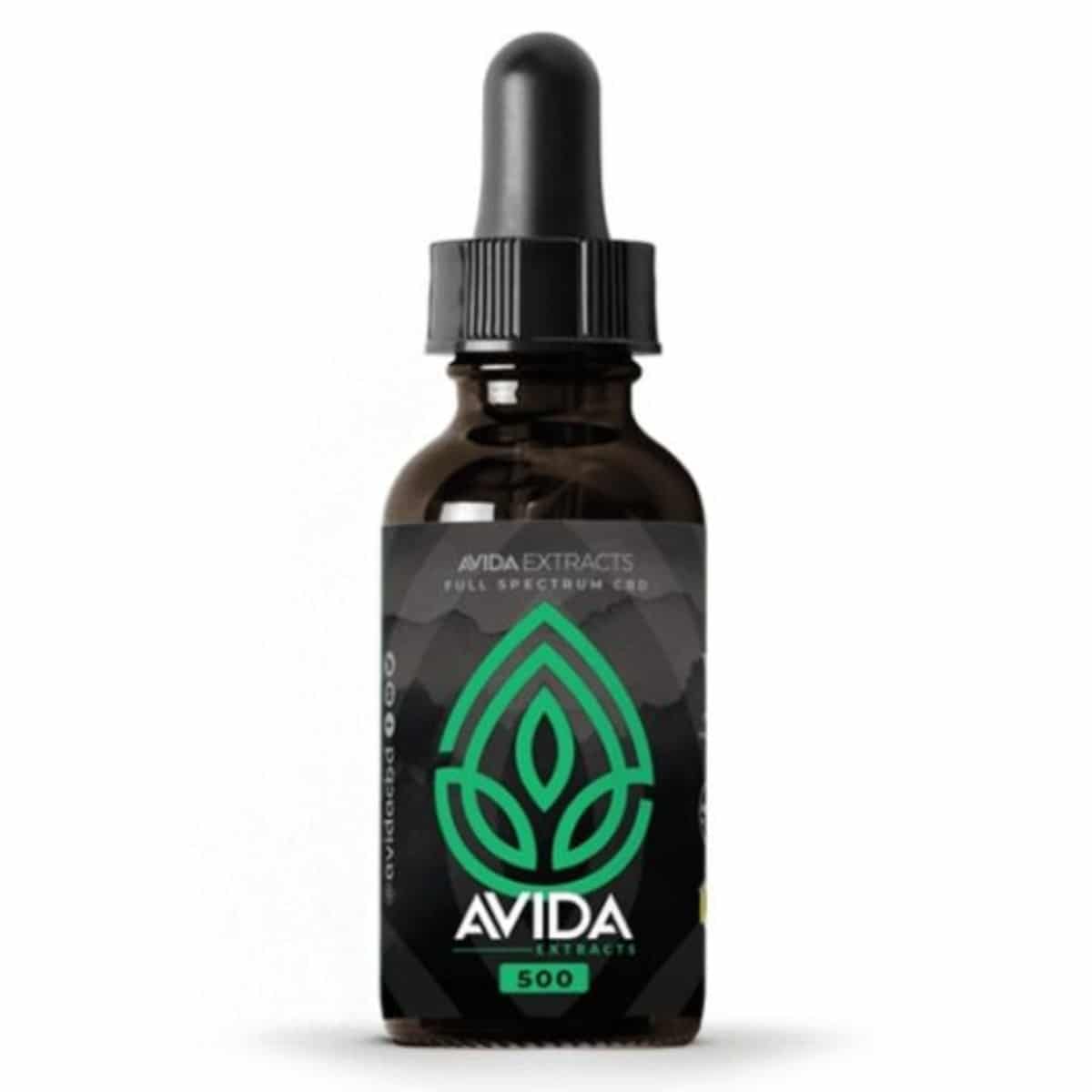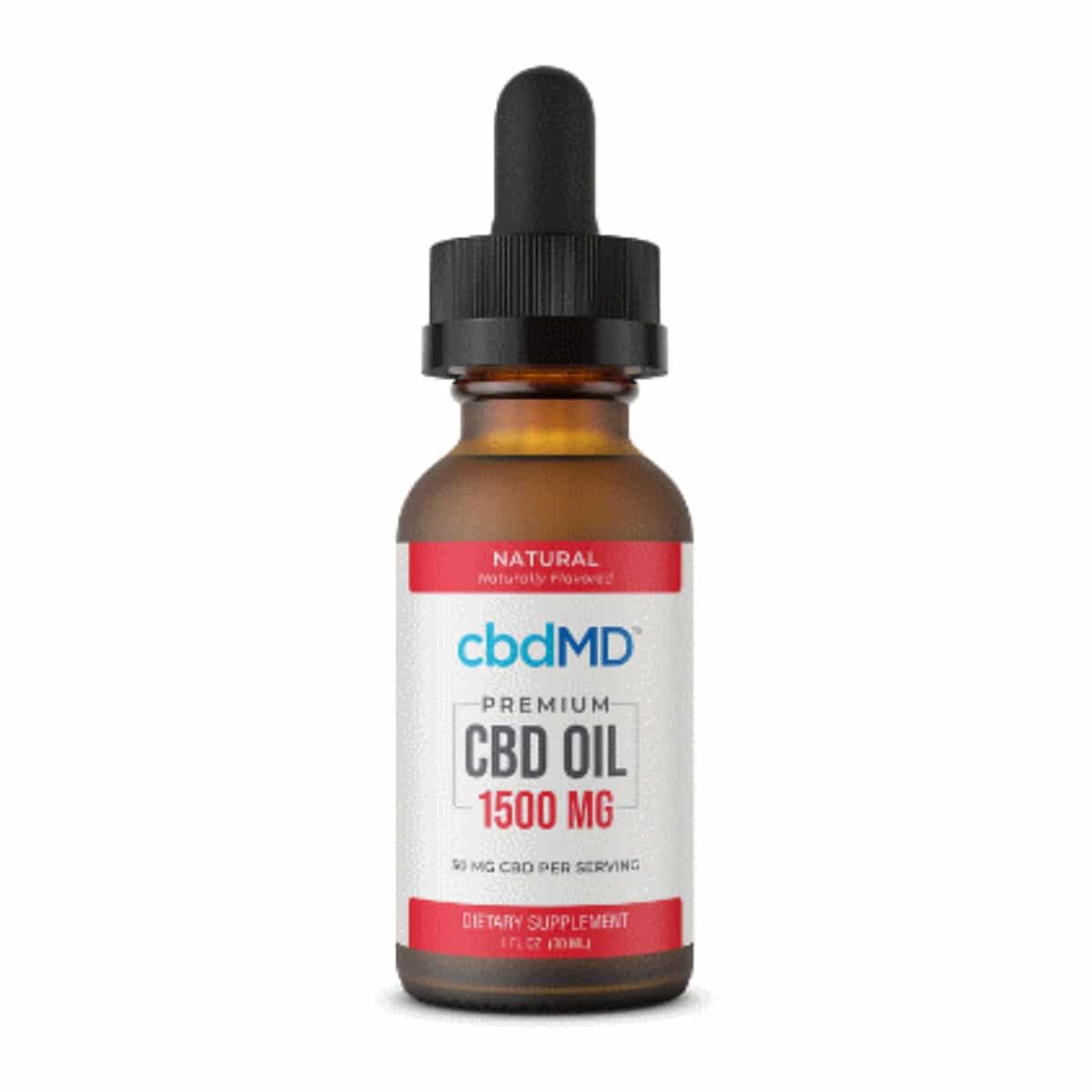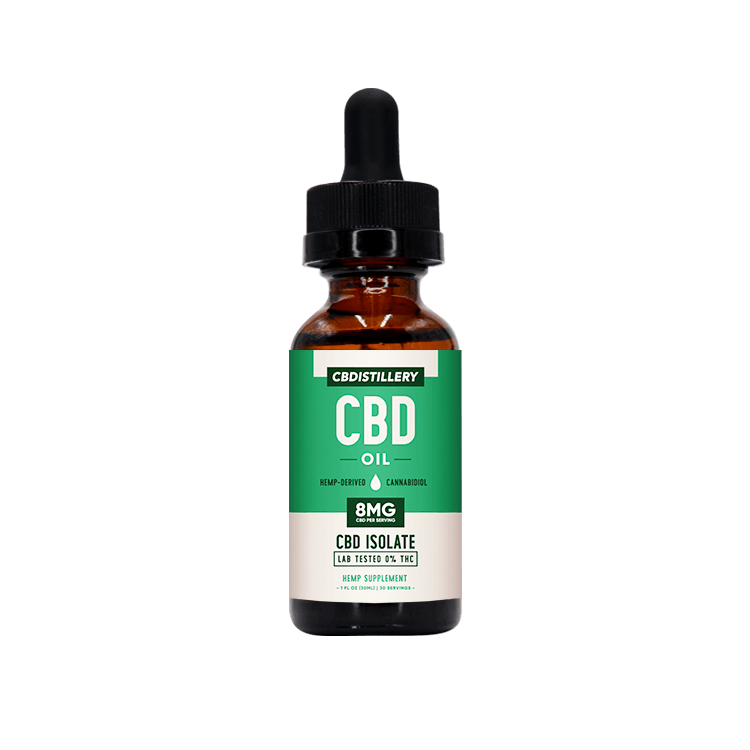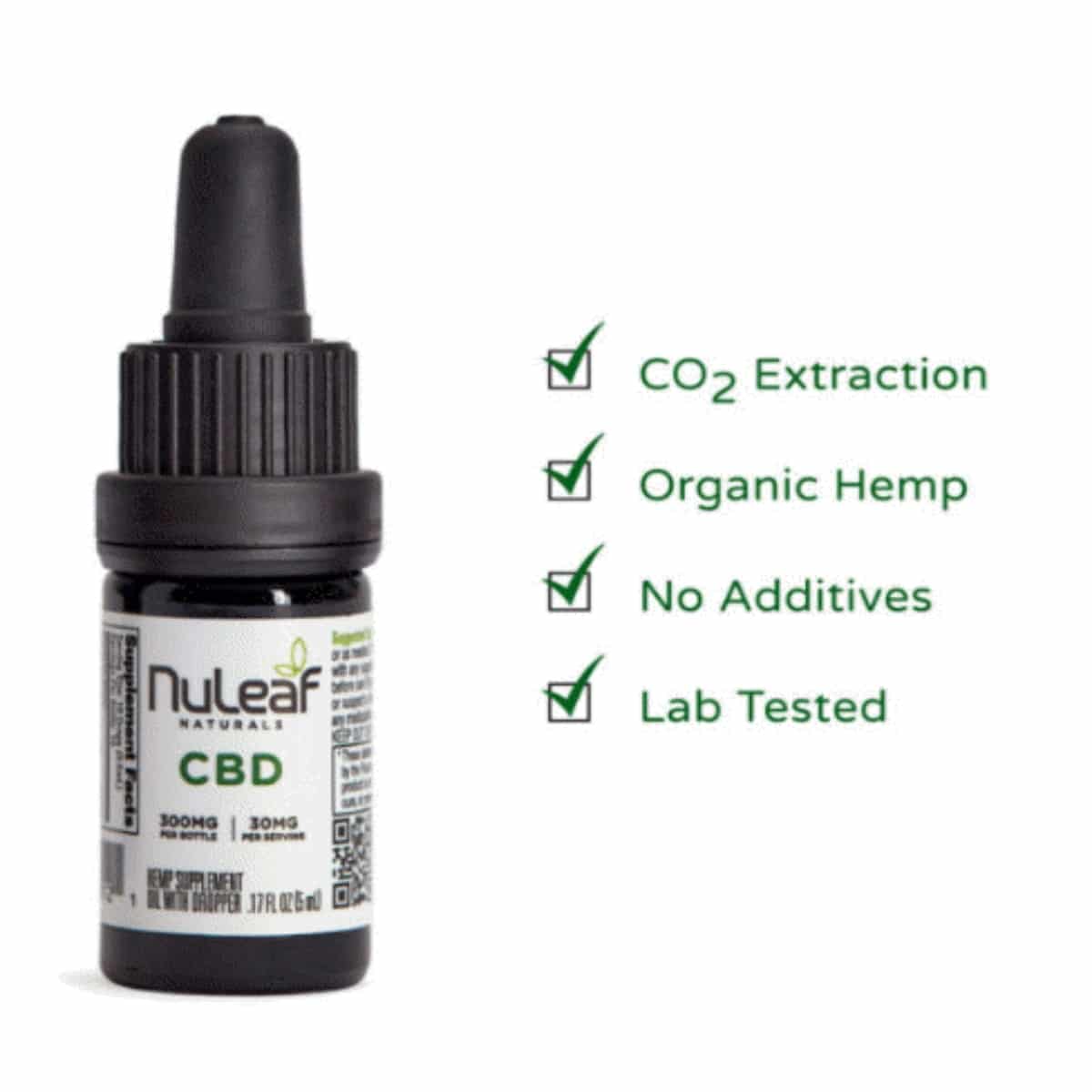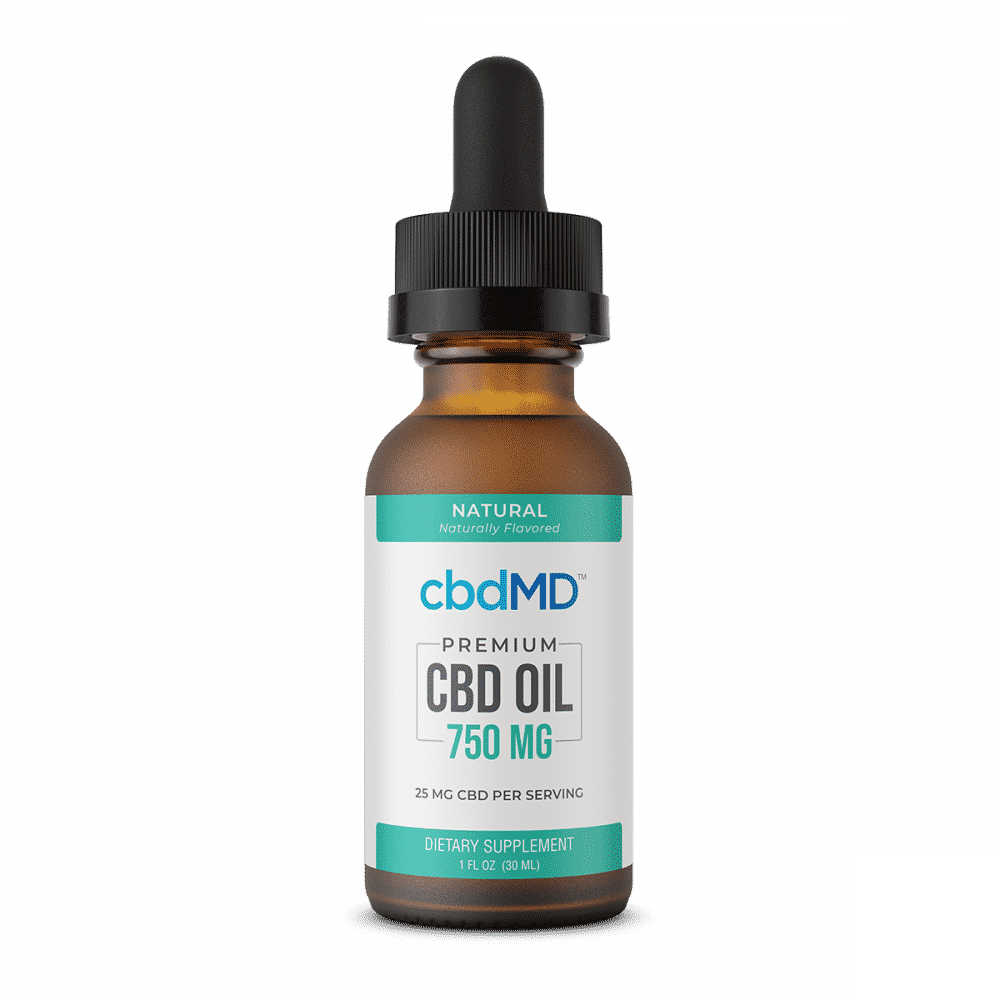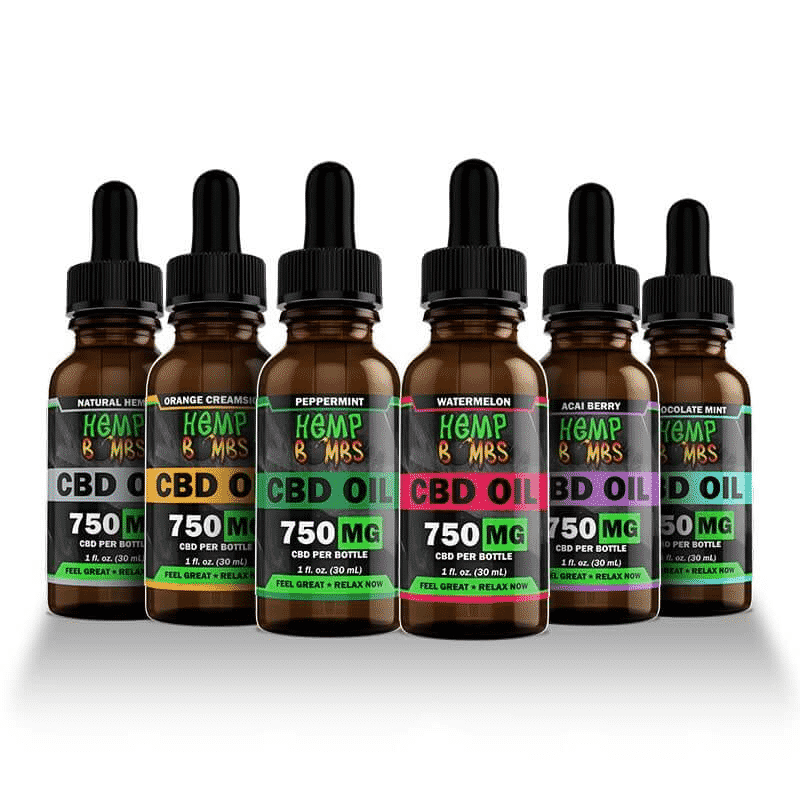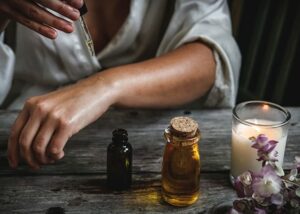Best CBD Oil for Anxiety
Cannabidiol (CBD) may be the natural alternative treatment you are looking for to reduce symptoms of anxiety. Below are some of the best CBD products that can help you relax and relieve stress.
Best CBD Oil for Anxiety 2025
- Spruce 750mg Lab Grade CBD Oil Editor's Pick
- NuLeaf Naturals 900mg Full Spectrum Hemp CBD Oil Best Organic
- Spruce 2400mg Lab Grade CBD Oil Editor's Pick
- Avida Full Spectrum CBD Oil Tincture 500mg Best Seller
- cbdMD CBD Oil Tincture Natural 1500mg Best Natural Alternative
- CBDistillery THC Free CBD Oil Tinctures Best THC-Free
- cbdMD CBD Oil Tincture Natural 750mg Best Customer Rated
- NuLeaf Naturals 300mg Full Spectrum Hemp CBD Oil Best Starter
- Hemp Bombs 750mg CBD Oil Best Flavor Range
Compare the Best CBD Oil for Anxiety in 2022
Best CBD Oil for Anxiety
1. Spruce 750mg Lab Grade CBD Oil
cbdc overall score
4.8
CBDC Evaluation Table/Score
| Pros | Cons |
|---|---|
|
Mid-strength |
No other flavors |
|
Natural peppermint flavor |
|
|
Made from 100% organic and natural ingredients |
Overview
Each bottle of the 750mg CBD oil tincture contains 25mg of CBD per dropper full. The oil is peppermint flavor to mask any unpleasant tastes related to CBD.
2. NuLeaf Naturals 900mg Full Spectrum Hemp CBD Oil
cbdc overall score
5.0
CBDC Evaluation Table/Score
| Pros | Cons |
|---|---|
|
Pure CBD hemp |
No other flavors |
|
All natural |
|
|
Approximately 300 drops total |
Overview
Natural remedy for various illnesses. NuLeaf Naturals’ CBD oil is a whole-plant extract containing a full spectrum of naturally occurring synergistic cannabinoids and terpenes.
3. Spruce 2400mg Lab Grade CBD Oil
cbdc overall score
5.0
CBDC Evaluation Table/Score
| Pros | Cons |
|---|---|
|
Extra Strength |
Tastes bitter |
|
No artificial flavoring or colors |
No THC-free option |
|
Made from 100% organic and natural ingredients |
Overview
The largest bottle of CBD oil that Spruce offers contains 2,400mg of CBD. This is full-spectrum CBD oil, which is the maximum possible potency. Each high potency dropper full contains 80mg of CBD. There are no flavorings in it, which allows for the most CBD to fit in the 30ml bottle.
4. Avida Full Spectrum CBD Oil Tincture 500mg
cbdc overall score
4.6
CBDC Evaluation Table/Score
| Pros | Cons |
|---|---|
|
Light Spearmint flavor |
No other flavor |
|
Non-THC, Non-detected in drug test |
Overview
Avida Extracts Full Spectrum CBD oil is the latest iteration of the brand’s advanced Avida CORE Spectrum technology. They use a proprietary full spectrum blend, resulting in the highest naturally occurring Phyto-cannabinoids and Terpenes with THC (<0.3) to support your health.
5. cbdMD CBD Oil Tincture Natural 1500mg
cbdc overall score
4.7
CBDC Evaluation Table/Score
| Pros | Cons |
|---|---|
|
Various delicious flavors to choose from |
cbdMD uses MCT as its carrier oil so individuals who are allergic with coconuts should consider other brand options |
|
Has vegan, organic, and gluten-free ingredients |
|
|
Free shipping for this particular product within USA |
|
|
World-class customer service team |
Overview
cbdMD’s CBD oil tinctures are made using only CBD sourced from medical hemp and MCT oil as a carrier oil. Tinctures are offered in orange, mint, natural, and berry flavors. Safe for daily use, the oil tinctures are packaged with a built-in rubber dropper to adjust CBD dosage easily. The packaging is made to be easy to transport and discreet to use.
6. CBDistillery THC Free CBD Oil Tinctures
cbdc overall score
4.4
CBDC Evaluation Table/Score
| Pros | Cons |
|---|---|
|
60-Day Satisfaction Guarantee |
Dropper is a bit shaky |
|
Various strengths |
|
|
Oil extracted from aerial plant parts of US grown industrial hemp |
|
|
Sourced from non-GMO industrial hemp grown in the USA through natural farming practices |
Overview
CBDistillery’s Isolate CBD Oil Tinctures harness the power of pure CBD. CBD Isolate Oil Tinctures include 0.0% THC. When you use CBDistillery CBD Isolate Oil Tinctures, you can be assured you’re using the highest quality CBD on the market.
7. NuLeaf Naturals 300mg Full Spectrum Hemp CBD Oil
cbdc overall score
4.6
CBDC Evaluation Table/Score
| Pros | Cons |
|---|---|
|
Pure CBD hemp |
No other flavors |
|
All natural |
A bit pricey compared to competitors |
|
Approximately 100 drops total |
Overview
This is one of several concentrations from NuLeaf Naturals. As the lowest concentration, it is the company’s best option for those new to CBD oil. The product is lab-tested and fully organic. It is full-spectrum, so it contains THC in small quantities.
8. cbdMD CBD Oil Tincture Natural 750mg
cbdc overall score
4.4
CBDC Evaluation Table/Score
| Pros | Cons |
|---|---|
|
Vegan and Gluten free |
Does not ship internationally |
|
Has a third-party lab test |
|
|
Wide variety of CBD strengths and sizes |
Overview
A 750mg bottle of cbdMD’s Broad Spectrum Oil Tincture does not contain THC. It also has a fairly wide flavor range which is perfect for those who prefer other taste. Vegan consumers are considered since cbdMD offers Vegan products. Aside from all of that, another reason why people love cbdMD is because it’s free from harmful chemicals.
9. Hemp Bombs 750mg CBD Oil
cbdc overall score
3.9
CBDC Evaluation Table/Score
| Pros | Cons |
|---|---|
|
Wide variety of flavors |
Incomplete information about the product |
|
Lab test results are complete |
Does not ship to all international countries |
|
30-day money-back guarantee |
Overview
Hemp Bombs offer CBD Oil Tinctures that come in a 30ml bottle containing 750mg of CBD. They provide a wide range of flavors perfect for those that have a knack for sweets. Consumers can safely intake this because it’s free of chemicals and pesticides. Hemp Bombs also offer a 20% off on products upon subscription.
How We Rank
Our Ratings
How Do We Rank Our Reviews?
Value
Core Technology
Expandable Packages
Installation & Set-Up
Trial Period & Flexible Contracts
Brand Recognition & Reputation
How CBD Helps With Anxiety
The health benefits of CBD are characterized by their interaction with the endocannabinoid system (ECS). The ECS is a lipid signaling system made up of endocannabinoids (endogenous cannabis-like molecules), cannabinoid receptors, and enzymes.
Studies suggest that the ECS plays an essential role in regulating gastrointestinal, immune, behavioral, cardiovascular, and mammalian reproduction functions. Other studies also noted that controlling ECS functions might help treat drug addiction and alcoholism(1).
The ECS has a family of receptors known as CB1 and CB2. The former is mainly distributed in the brain, while the latter is mainly found in the immune system(2).
The CB1 receptors also play a role in memory processing, motor regulation, appetite regulation, pain sensation, sleep, and mood(3).
Studies also suggest that the activation of CB1 receptors may trigger neuroprotective responses. According to a 2010 study, cannabinoids with a higher affinity for CB1 receptors might help treat neurodegenerative diseases, including Alzheimer’s disease, Parkinson’s disease, and multiple sclerosis(4).
Meanwhile, another study suggested that activating the CB2 receptors may prevent inflammation, reduce chronic pain, and lessen tissue damage(5).
According to the study, activating the CB2 receptor might help treat inflammation-related conditions. These conditions include arthritis, chronic inflammatory demyelinating polyneuropathy (CIDP), and inflammatory bowel syndrome(6).
CBD interacts with the CB1 and CB2 receptors and other receptors in the body, including the 5-HT1A receptor. Since this receptor is linked to the neurotransmitter serotonin, which contributes to feelings of well-being, CBD might help promote wellness, healing, and balance(7).
In a 2005 study, medical researchers stated that CBD could promote serotonin reuptake in the brain(8). Serotonin is found in the body’s digestive system and blood platelets, and it impacts a variety of body and psychological functions.
Serotonin in the brain affects levels of happiness, anxiety, and mood.
According to the researchers, CBD may help improve serotonin regulation, which may help stabilize mood and reduce anxiety(9). Most pharmaceutical antidepressants interact with serotonin pathways.
In a 2012 study published in the Translational PsychiatryJournal, medical researchers discussed CBD’s ability to manipulate the ECS in the body to produce more natural cannabinoids. One of them is anandamide, a neurotransmitter that regulates emotions(10).
The study indicated that anandamide levels were higher in patients who received CBD(11).
According to a recent study, the increased production of anandamide production in the brain may prevent stress while reducing anxiety and fear(12).
Another recent study showed that CBD may help boost anandamide levels in treating anxiety-related medical conditions(13).
Studies from Cannabis and Cannabinoid Research noted that CBD might boost the hippocampus’ activities to regenerate nerve cells(14).
Hippocampus is a part of the brain located in the temporal lobe that plays a crucial role in memory and learning(15).
According to preclinical studies, CBD demonstrates pro-neurogenic properties in the hippocampus, which might trigger CBD’s anxiolytic effects(16).
A 2018 study also indicated that CBD may function as a potential remedy to depression(17).
Benefits of Using CBD for Anxiety
A prescription is required when buying medications for anxiety, including serotonin-norepinephrine reuptake inhibitors (SNRIs), selective serotonin reuptake inhibitors (SSRIs), tricyclic antidepressants (TCAs), and benzodiazepines.
In contrast, some US states authorize the purchase of hemp-derived CBD products even without a prescription.
According to Nora Volkow, director of the National Institute on Drug Abuse (NIDA), CBD is also non-psychoactive and non-addictive, making the cannabinoid an appealing option for anxiety patients who do not want to be drug dependent(18).
A 2017 Cannabis and Cannabinoid Research journal review noted that CBD is well-tolerated at doses of up to 1,500mg per day(19).
The review is backed by another critical review of CBD from the World Health Organization (WHO), stating that the cannabinoid has a good safety profile(20).
Risks of Using CBD for Anxiety
The United States Food and Drug Administration still has not regulated CBD. As of December 2002, FDA has only approved Epidiolex, a CBD-derived medication for epileptic seizures associated with Lennox-Gastaut Syndrome and Dravet Syndrome(21).
CBD may also come with side effects, including diarrhea, tiredness, appetite changes, and weight changes. CBD may also change how the body metabolizes certain medications(22).
It may also be challenging to identify whether a CBD product has the CBD concentration its label claims since the products sold online and in dispensaries are still unregulated(23).
Researchers published a review in the American Medical Association Journal noting that some CBD products have inaccurate product labels. Some products had more CBD and some had less CBD than what was promised(24).
Below are some of the potential risks of CBD as listed by the FDA(25):
- Liver distress
- Gastrointestinal distress
- Mood changes
- Lack of appetite
- Interactions with other medications
- Interactions with other drugs and alcohol
The department also warned users of the several unknown factors that make using CBD potentially harmful(26):
- How does CBD affect developing fetuses or newborns?
- How do cannabinoids interact with other medicinal plants?
- Does CBD use have adverse effects on the male reproductive system?
- How much CBD is required to trigger the risks linked with it?
- What are the effects of long-term use of CBD?
- Do different consumption methods alter the effect of CBD?
- How does the cannabinoid affect developing brain functions in children?
Treatments for Anxiety
Doctors usually treat anxiety with medications, which only relieve symptoms. Although psychiatrists usually prescribe medication for anxiety, some states also authorize psychologists with specialized training to prescribe anti-anxiety medications(27).
According to the National Institute of Mental Health (NIMH), the three common types of medications used to treat anxiety-related medical conditions are anti-anxiety drugs, antidepressants, and beta-blockers.
Anti-Anxiety Medications
The most well-known anti-anxiety medications are benzodiazepines, which help reduce the symptoms of anxiety, worry or extreme fear, and panic attacks(28).
Typically used as first-line treatments for anxiety disorders, benzodiazepines have both pros and cons.
According to NIMH, the drug is effective in relieving anxiety. It is also more fast-acting than antidepressant drugs prescribed to treat anxiety(29).
However, benzodiazepine users may build up a tolerance to the medication if they take the medicine over a long period. Thus, patients with anxiety may have to take increasing doses of the drug to get the same effect, resulting in drug dependence(30).
To solve the issue, medical professionals prescribe benzodiazepines for short periods. Prescribing short-term use of benzodiazepine helps people with substance abuse problems, older adults, and people who become drug dependent easily(31).
Another drawback of benzodiazepine use is that patients who suddenly stop taking the drug may experience withdrawal symptoms or the return of anxiety. This drawback is why doctors usually prescribe lower doses of the medication before they stop taking the medication(32).
In terms of long-term use, benzodiazepines are often regarded as a second-line treatment for anxiety, following antidepressants. Doctors prescribe the drug to patients who experience distressing flare-ups of symptoms(33).
Buspirone is another type of anti-anxiety medication designed for the treatment of chronic anxiety. However, according to NIMH, the drug is not always effective(34).
Antidepressants
Antidepressants are medications formulated to treat depression. However, doctors may also prescribe the medicine to patients with anxiety disorders(35).
Antidepressants help manage how the brain uses certain chemicals that control mood or stress. Medical professionals may prescribe several different antidepressant medicines before finding the one that effectively manages the patient’s symptoms with tolerable side effects(36).
Most of the time, doctors consider antidepressants that have helped a patient before. A medication that worked for a patient’s close family member may also be considered(37).
Antidepressants may take some time to work, so NIMH recommends to wait before deciding on the medication’s effectiveness(38).
NIMH also advises against suddenly stopping antidepressants without the help of a doctor. If a doctor and a patient decide to stop the medication, the doctor should help their patient slowly and safely decrease dosing(39).
Abruptly stopping antidepressants may cause withdrawal symptoms, NIMH warned(40).
SSRIs and SNRIs are considered first-line treatments for anxiety. Meanwhile, TCAs and monoamine oxidase inhibitors (MAOIs), which are less common, are also considered effective(41).
Beta-Blockers
Typically used as medications to lower blood pressure, beta-blockers may also be prescribed to relieve the physical symptoms of anxiety, including blushing, rapid heartbeat, and trembling(42).
When taken for a short period, beta-blockers may help manage the physical symptoms of anxiety. You may also use it as needed to control acute anxiety(43).
Alternative Treatments
Some of the treatments for anxiety are yoga and massage.
According to an article from the Harvard Health Publishing of the Harvard Medical School of Harvard University, yoga may help treat anxiety because it functions as self-soothing techniques, including exercise, relaxation, meditation, exercise, or spending time with friends(44).
In a 2015 study published in the Frontiers in Psychology, high levels of oxytocin, a hormone produced in the brain, is associated with increased well-being, social interaction, and anti-stress effects(45). A 2004 study indicated that the brain produces oxytocins in response to several kinds of massage(46).
Although manipulating oxytocin levels to treat mental health disorders has not yet been studied sufficiently, medical researchers believe that low oxytocin levels have been linked to depression(47).
Meanwhile, a 2012 study looked at the potential of essential oils and aromatherapy to reduce anxiety, reduce depression symptoms, and improve sleep(48).
Medical researchers also noted that massage may also help relieve pain in cancer patients, helping relieve fatigue, anxiety, and stress(49).
The American Massage Therapy Association (AMTA) backed the findings of the study. According to AMTA, the potential value of massage therapy for depressed patients comes from regularly disturbing the pattern of depression(50).
AMTA stated that interrupting the pattern allows patients to remember what it is like to live with a healthy mental state, providing hope that it is possible(51).
Choosing the Right Medication
According to NIMH, certain medications may work better for certain types of anxiety disorders. NIMH recommends working closely with medical professionals to identify which medication is best for an individual with anxiety disorders(52).
NIMH also warned that certain substances may worsen the symptoms of anxiety disorders or interact with medication. These substances include caffeine, cold medicines, prohibited drugs, and herbal supplements(53).
It is recommended for patients with anxiety to talk to their doctor to ask which substances they must avoid and which substances are safe.
Choosing the right medication, treatment plan, and dose must be done under an expert’s care and based on a person’s needs and medical condition. A medical professional may try prescribing several medicines before finding the right one for the patient.
CBD Dosage and Administration Routes for Anxiety
The FDA has not approved CBD as a supplement, making the guidelines for proper CBD dosage for specific medical conditions still unclear.
Dosage
There are several factors to consider when determining the correct dose for an individual. These factors include the product’s CBD concentration, the user’s body weight, and the desired results.
According to a 2019 study, CBD doses of 300mg to 600mg (given in single doses) may help reduce anxiety(54).
The researchers studied CBD’s effects in adults with anxiety disorders and sleep problems(55). Most subjects received a capsule containing 25 mg of CBD once a day, while some received 50mg CBD or 75mg CBD.
After the two months of taking CBD, 78.1% to 79.2% of the participants reported improvements in anxiety symptoms. However, researchers also noted that 5.3% to 19.5% of the participants developed worse symptoms after taking CBD(56).
It is still recommended to seek medical advice before taking CBD for anxiety. Although considered generally safe, CBD’s long-term effects have yet to be examined, a 2011 review in the Current Drug Safety Journal stated(57).
Routes of Administration
There are several methods to consume CBD. Some of the most common methods are:
- Mixing CBD into drinks or meals
- Taking CBD using a measured dropper
- Ingesting CBD edibles or capsules
- Applying CBD balms or balms into the skin
- Sublingually (dropping the oil under the tongue)
One of the most common methods of CBD consumption is oral administration. CBD oil capsules and edibles, including tablets, brownies, softgels, and gummies, are some of the CBD products you may take orally.
Oral administration of CBD is a convenient and consistent way to take CBD oil, especially for new CBD users.
Meanwhile, CBD oil tinctures or drops may be the best option for CBD users looking for quick-acting remedies. CBD oils may be taken sublingually or dropped under the tongue by using a measured dropper. Before swallowing, hold the oil in the mouth for 30 seconds, allowing CBD into the bloodstream.
According to a 2002 study, the sublingual method of CBD administration is an efficient way of taking CBD tinctures. According to the study, CBD oil has a sublingual bioavailability of 13% to 19%(58).
Bioavailability pertains to the extent and rate at which an active drug ingredient is absorbed and becomes readily available for the body to metabolize (break down)(59).
In a 2015 review from the International Journal of Pharmacy and Pharmaceutical Sciences, researchers found that with the sublingual consumption method, peak blood levels of most compounds are achieved in 10 to 15 minutes(60). According to the study, this is faster than when the same drugs are ingested orally.
If you do not like the taste of pure CBD hemp extract, some CBD brands offer CBD gummies in delicious flavors. Gummies also come in a fixed dose, making it consistent and convenient to take.
Some brands also offer unflavored options for their CBD oil product line to attract more customers.
You may also mix CBD oils to meals. According to a 2018 study, cannabinoid’s highly lipophilic nature (soluble in lipids or oils) allows it to dissolve in the fat content of food, which may increase the compound’s solubility and absorption(61).
However, CBD may need additional fat, such as milk, when it is mixed with a drink for it to bind and completely dissolve.
You may also apply CBD topically or directly on your skin. You may incorporate CBD into other topical products, including lotion, cream, balm, or salve.
One of the benefits of CBD‘s topical application is that it avoids gastrointestinal administration and first-pass metabolism, which results in more constant plasma levels(62).
The first-pass effect is the early metabolization of a medication that reduces drug concentration upon reaching its intended site of action(63).
Meanwhile, vaping is a quick way to introduce CBD in the body since it enters through the lungs’ bloodstream without going through the digestive system.
A study showed that after smoking CBD using a CBD vape, the cannabinoid reached the highest plasma concentrations three minutes after the dose(64).
However, research also suggests that vaping may be harmful to the lungs. According to a recent study, increased vape use in the US resulted in the rise of vaping-related pulmonary diseases(65).
Other risks of vaping include chemical irritation or allergic reactions to the chemicals in the inhaled vapors(66).
According to a 2018 study, the half-life of CBD was reported between 1.4 hours and 10.9 hours after an oromucosal (surface of the mouth) administration. Meanwhile, researchers noted the half-life of CBD in two to five days after an oral administration(67).
CBD’s half-life was reported 24 hours after an intravenous administration and 31 hours after smoking(68).
Legality of CBD
Former President Donald Trump signed the Farm Bill into law in 2018, legalizing hemp cultivation at the federal level. The law also removed hemp and hemp-derived products from the list of Schedule I controlled substances(69).
Under the Farm Bill 2018, farmers may cultivate hemp plants as long as the crops have tetrahydrocannabinol (THC) content less than 0.3%(70).
Still, you must first research about CBD laws before buying CBD products. The FDA still has not regulated the CBD market as of December 2020.
State laws also have varying levels of restrictions in terms of CBD regulations. In some states, like South Dakota, laws about the regulation of CBD products remain unclear(71).
Although the 2018 Farm Bill does not cover marijuana products, state lawmakers may introduce their own laws regarding legalizing medical and recreational marijuana.
Below is a list of states with Limited Access Marijuana Product Laws. Most of these states allow the development of low-THC and high-CBD hemp products(72):
- Alabama
- Florida
- Georgia
- Idaho
- Iowa
- Mississippi
- North Carolina
- Oklahoma
- South Carolina
- Tennessee
- Utah
- Virginia
- Wisconsin
- Wyoming
Most companies design drug tests to detect THC. The cannabinoid is present in full-spectrum hemp extracts, although only in trace amounts.
According to a 2017 review published in the Mayo Clinic Proceedings, drug testing cut-off values were set to avoid the possibility that the detection of THC in trace amounts may result in a positive test. The cut-off value was set this way to avoid false-positive results in drug tests(73).
Although drug tests may not detect trace amounts of THC, frequent use of CBD products may raise the THC level in the body above the cut-off values set, which results in a positive drug test.
Understanding CBD
Cannabidiol (CBD) is typically present in cannabis trichomes (the tiny, hair-like formations in the hemp flower) of cannabis plants. The cannabinoid is non-psychoactive and is usually derived from the hemp variety of cannabis.
Although usually sourced from the cannabis plant‘s indica strain, small traces of CBD may also be found in the Cannabis sativa strain.
CBD oil is made from a concentrated extract from hemp plants, specifically from a thick substance called resin, in the glandular trichomes. You may also find resins in the plant’s stems and leaves.
Aside from CBD, other non-psychoactive cannabinoids that may be extracted from hemp include cannabichromene (CBC) and cannabigerol (CBG).
Other compounds that may be sourced from hemp also include flavonoids and terpenes. Flavonoids provide cannabis flowers their distinct color, while the terpenes give cannabis flowers their distinct smell.
Hemp is a variety of cannabis plants that may grow up to 13 feet in height. Farmers typically cultivate industrial hemp plants for the plant’s flowers, seeds, and stalks.
It is different from marijuana, a cannabis plant cultivated for its relaxing and psychoactive properties. Unlike hemp, marijuana contains high concentrations of THC.
You may find the psychoactive cannabinoid throughout the aerial parts of a marijuana plant. However, THC is most abundant in the flowers of marijuana plants.
Most farmers do not cultivate marijuana seeds and marijuana stalks. Marijuana plants are usually grown and harvested only for their highly resinous flowers, containing high concentrations of cannabinoids.
Although marijuana and hemp have similarities, the two plants are genetically different.
Unlike hemp, marijuana is included in the list of Schedule I drugs under the Controlled Substance Act because of the plant’s high potential for abuse, which may be attributed to marijuana’s psychoactive effects.
Meanwhile, hemp and its products have been removed from the list of controlled substances as long as the products have less than 0.3% THC.
There are currently three types of CBD products available in the CBD industry today: full-spectrum CBD, broad-spectrum CBD, and CBD isolate.
Full-spectrum CBD oil has all phytonutrients and phytocannabinoids from hemp, including terpenes, fatty acids, flavonoids, essential oils, and even trace amounts of THC.
Some CBD users opt for a full-spectrum CBD product because of its “entourage effect,” which refers to the suggested positive effect brought on by terpenes and cannabinoids working together(74).
Broad-spectrum CBD products are like full-spectrum products without THC. Using these products provides users with the same benefits linked with full-spectrum CBD, without ingesting THC.
Meanwhile, CBD isolates only contain isolated CBD. CBD isolate products are recommended for CBD users allergic to certain hemp plant compounds or who want to keep their body THC-free.
Most brands incorporate carrier oils with CBD to create CBD oils. Some brands use hemp seed oil, while others use medium-chain triglycerides oil (MCT oil) as their tincture carrier oils.
Other brands also offer discounts and money-back guarantees to encourage CBD users to buy their products.
How to Identify High-Quality CBD Products
Regardless of the kind of CBD products you are looking for, you must employ careful consideration when looking for the highest-quality CBD oil for anxiety.
Below are some tips to remember to ensure the safety and reliability of hemp CBD products:
- Choose the best CBD oils for anxiety made by reliable and legitimate CBD brands.
You must only purchase high-potency CBD products made from non-genetically modified organisms (non-GMO) offered by reliable brands. Some brands also offer gluten-free products.
Most reliable companies that produce high-quality products cultivate their industrial hemp from their own farms. Some legitimate brands also purchase grown hemp from licensed and reputable hemp producers.
Most US brands also grow their hemp from farms in Colorado. The state has been at the forefront of hemp oil production because of the state’s favorable CBD laws.
In Colorado, the medical and recreational use of CBD and other products derived from cannabis plants have been legal since 2012(75). Some of the popular CBD brands with farms in the state include CBDPure, CBDistillery, and NuLeaf Naturals.
- Research the state regulations applicable to CBD in the area.
CBD laws vary from state to state, highlighting the importance of studying CBD state laws before buying products.
- Read product reviews.
It is recommended to read product reviews when purchasing CBD online. Meanwhile, when buying from a store or a CBD dispensary, you must first check whether the store is allowed by the government to sell CBD.
Stanley brothers’ Charlotte’s Web is one of the CBD companies with good reviews from previous customers.
- Determine the extraction method used in creating the CBD product.
Determine the CBD company’s extraction process used in manufacturing its CBD product. The FDA considers the supercritical-CO2 extraction method as safe to use in pharmaceutical manufacturing(76).
The supercritical-CO2 extraction method, also known as the supercritical fluid extraction (SFE) process, uses carbon dioxide (CO2) to extract CBD from the original hemp material.
During this process, CBD manufacturers use an extraction machine to compress and freeze carbon dioxide until the compound reaches a supercritical cold liquid state. Hemp oil then passes through the plant material, taking all the cannabinoids and terpenes with it.
Solvent-based extraction methods are another type of extraction process used by CBD brands. During this procedure, manufacturers use solvents, such as propane, butane, and ethanol, to extract cannabinoids from hemp plants.
- Look for certification codes.
Certification authorities recognize certain products only after conducting thorough screening tests.
You may check if a company is certified by the US Hemp Authority or accredited by the Better Business Bureau (BBB). The former awards certification to companies with the best CBD products, while the latter collects consumer reports and accredits companies with the best business practices.
- Compare the information on the product label to data from third-party lab reports.
You must determine if the company’s claims about its products match the information indicated in third-party lab testing reports. A third-party lab result typically includes information about a product’s CBD potency and concentration, THC content, and presence of harmful contaminants.
- Consult a medical professional before using CBD.
Before taking any CBD products, visit a medical professional experienced in CBD use. This consultation is critical, especially if you are also taking prescription medications for a severe medical condition.
Product Frequently
Asked Questions
-
How can CBD help with anxiety?
CBD may help promote serotonin production by interacting with the 5-HT1A receptor, which is a receptor associated with serotonin. Serotonin is a neurotransmitter that contributes to an individual’s general well-being(77).
-
What research exists that suggests CBD’s anxiolytic effects?
A study published in the Neuropsychopharmacology journal stated that a single dose of CBD may reduce the symptoms of anxiety disorders(78). A recent review published in the Brazilian Journal of Psychiatry yielded similar effects on healthy people in anxiety-inducing situations(79).
-
Can CBD make anxiety worse?
Studies have suggested that CBD has the potential to relieve anxiety even at higher doses. However, CBD with high THC levels may lead to increased heart rate or racing thoughts, making anxiety symptoms worse(80).
-
Will CBD interact with other anti-anxiety medications?
According to a 2019 study, using CBD with other medications, such as antidepressants, immunosuppressants, chemotherapeutics, and antipsychotics, may have adverse side effects(81). Medical researchers recommended decreasing doses, monitoring for adverse drug events, and looking for alternative therapy.
-
Are there other treatments to consider alongside CBD to help with anxiety?
In an article from Harvard Health Publishing of the Harvard Medical School of Harvard University, researchers stated that yoga, exercise, relaxation, meditation, and spending time with friends may help reduce anxiety(82).
-
Do drug tests detect CBD use?
According to a 2017 Mayo Clinic Proceedings review, drug testing cut-off values were designed in a way that the detection of THC in trace amounts should not result in a positive test. However, using CBD oil frequently may increase the THC level in the body above the cut-off values set, which may result in a positive drug test(83).
-
What is the CBD dosage for anxiety?
In a recent study, medical researchers noted that CBD doses of 300mg to 600mg may help reduce anxiety(84).
-
Is CBD oil available online?
Most CBD brands have online shops where customers may buy their products. To buy CBD products online, you only need to provide your payment information and your delivery information, before proceeding to the checkout page.
-
What is a high-quality CBD product?
A good CBD product is made up of non-GMO ingredients and organic hemp-derived CBD. Products must also be free from contaminants, including herbicides, additives, pesticides, residual solvents, heavy metals, and other harmful substances.
-
What anxiety disorders can CBD help manage?
According to a review published in Neurotherapeutics journal in 2015, administering CBD may help reduce the symptoms of anxiety in patients with panic disorder, social anxiety disorder, post-traumatic stress disorder (PTSD), or generalized anxiety disorder(85).
- Mouslech, Z. & Valla, V. (2009). Endocannabinoid system: An overview of its potential in current medical practice. Neuro Endocrinology Letters, (2):153-79. https://pubmed.ncbi.nlm.nih.gov/19675519/
- Ibid
- ECHO. (2017, April 18). Retrieved from https://echoconnection.org/look-endocannabinoid-systems-cb1-cb2-receptors/
- Scotter, E., Abood, M., & Glass, M. (2010). The endocannabinoid system as a target for the treatment of neurodegenerative disease. British Journal of Pharmacology, 160(3): 480–498. https://www.ncbi.nlm.nih.gov/pmc/articles/PMC2931550/
- Turcotte C, Blanchet MR, Laviolette M, Flamand N. The CB2 receptor and its role as a regulator of inflammation. Cell Mol Life Sci. 2016;73(23):4449–4470. DOI:10.1007/s00018-016-2300-4
- Ibid
- ECHO. (2017, March 29). Retrieved from https://echoconnection.org/differences-cbd-thc/
- Russo, E.B., Burnett, A., Hall, B. et al. Agonistic Properties of Cannabidiol at 5-HT1a Receptors. Neurochem Res 30, 1037–1043 (2005). https://doi.org/10.1007/s11064-005-6978-1
- Ibid
- Leweke FM, Piomelli D, Pahlisch F, et al. Cannabidiol enhances anandamide signaling and alleviates psychotic symptoms of schizophrenia. Transl Psychiatry. 2012;2(3):e94. Published 2012 Mar 20. DOI:10.1038/tp.2012.15
- Ibid
- Morena M., Aukema, R., […], and Hill M. Upregulation of Anandamide Hydrolysis in the Basolateral Complex of Amygdala Reduces Fear Memory Expression and Indices of Stress and Anxiety. Journal of Neuroscience 13 February 2019, 39 (7) 1275-1292; DOI: https://doi.org/10.1523/JNEUROSCI.2251-18.2018
- Papagianni EP, Stevenson CW. Cannabinoid Regulation of Fear and Anxiety: an Update. Curr Psychiatry Rep. 2019;21(6):38. Published 2019 Apr 27. DOI:10.1007/s11920-019-1026-z
- Beale C, Broyd SJ, Chye Y, et al. Prolonged Cannabidiol Treatment Effects on Hippocampal Subfield Volumes in Current Cannabis Users. Cannabis Cannabinoid Res. 2018;3(1):94–107. Published 2018 Apr 1. DOI:10.1089/can.2017.0047.
- Anand, K. & Dhikav, V. (2012). Hippocampus in health and disease: An overview. Annals of Indian Academy of Neurology, 15(4): 239–246. https://www.ncbi.nlm.nih.gov/pmc/articles/PMC3548359/
- Campos AC, Ortega Z, […], and Guimarães FS. The anxiolytic effect of cannabidiol on chronically stressed mice depends on hippocampal neurogenesis: involvement of the endocannabinoid system. Int J Neuropsychopharmacol. 2013 Jul; 16(6):1407-19
- Crippa JA, Guimarães FS, Campos AC, Zuardi AW. Translational Investigation of the Therapeutic Potential of Cannabidiol (CBD): Toward a New Age. Front Immunol. 2018;9:2009. Published 2018 Sep 21. DOI:10.3389/fimmu.2018.02009.
- NIDA. Researching Marijuana for Therapeutic Purposes: The Potential Promise of Cannabidiol (CBD). National Institute on Drug Abuse website. https://www.drugabuse.gov/about-nida/noras-blog/2015/07/researching-marijuana-therapeutic-purposes-potential-promise-cannabidiol-cbd. July 20, 2015. Accessed January 31, 2020.
- Iffland K, Grotenhermen F. An Update on Safety and Side Effects of Cannabidiol: A Review of Clinical Data and Relevant Animal Studies. Cannabis Cannabinoid Res. 2017;2(1):139–154. Published 2017 Jun 1. DOI:10.1089/can.2016.0034
- Expert Committee on Drug Dependence Fortieth Meeting. Cannabidiol (CBD) Critical Review Report. June 2018. https://www.who.int/medicines/access/controlled-substances/WHOCBDReportMay2018-2.pdf
- U.S. Food and Drug Administration. (2020, Jan 15). FDA Regulation of Cannabis and Cannabis-Derived Products, Including Cannabidiol (CBD). Retrieved from https://www.fda.gov/news-events/public-health-focus/fda-regulation-cannabis-and-cannabis-derived-products-including-cannabidiol-cbd
- Alsherbiny MA, Li CG. Medicinal Cannabis-Potential Drug Interactions. Medicines (Basel). 2018;6(1):3. Published 2018 Dec 23. DOI:10.3390/medicines6010003
- Peachman, RB. (2019, Feb 26). Can CBD Help Your Child? Retrieved from https://www.consumerreports.org/cbd/can-cbd-help-your-child/
- Bonn-Miller MO, Loflin MJE, Thomas BF, Marcu JP, Hyke T, Vandrey R. Labeling Accuracy of Cannabidiol Extracts Sold Online. JAMA. 2017;318(17):1708–1709. DOI:10.1001/jama.2017.11909
- US Food and Drug Administration. What You Need to Know (And What We’re Working to Find Out) About Products Containing Cannabis or Cannabis-derived Compounds, Including CBD. Retrieved from https://www.fda.gov/consumers/consumer-updates/what-you-need-know-and-what-were-working-find-out-about-products-containing-cannabis-or-cannabis
- Ibid
- National Institute of Mental Health. Anxiety Disorders. Retrieved from https://www.nimh.nih.gov/health/topics/anxiety-disorders/index.shtml
- Ibid
- Ibid
- Ibid
- Ibid
- Ibid
- Ibid
- Ibid
- Ibid
- Ibid
- Ibid
- Ibid
- Ibid
- Ibid
- Ibid
- Ibid
- Ibid
- Harvard Health Publishing. Yoga for anxiety and depression. Retrieved from https://www.health.harvard.edu/mind-and-mood/yoga-for-anxiety-and-depression
- Uvnäs-Moberg K, Handlin L, Petersson M. Self-soothing behaviors with particular reference to oxytocin release induced by non-noxious sensory stimulation. Front Psychol. 2015;5:1529. Published 2015 Jan 12. DOI:10.3389/fpsyg.2014.01529
- Uvnäs-Moberg K. (2004). “Massage, relaxation and well-being: a possible role for oxytocin as an integrative principle?,” in Touch and Massage in Early Child Development, ed. Field T. (Calverton, NY: Johnson & Johnson Pediatric Institute
- Hormone Health Network. (2018, Nov). What is Oxytocin? Retrieved from https://www.hormone.org/your-health-and-hormones/glands-and-hormones-a-to-z/hormones/oxytocin
- Boehm K, Büssing A, Ostermann T. Aromatherapy as an adjuvant treatment in cancer care–a descriptive systematic review. Afr J Tradit Complement Altern Med. 2012;9(4):503–518. Published 2012 Jul 1. DOI:10.4314/ajtcam.v9i4.7.
- Mayo Clinic. (2020, Jan 17). Alternative cancer treatments: 10 options to consider. Retrieved from https://www.mayoclinic.org/diseases-conditions/cancer/in-depth/cancer-treatment/art-20047246
- Vallet, M. (2014, May 28). Massage + Depression. Retrieved from https://www.amtamassage.org/articles/3/MTJ/detail/2942/massage-depression
- Ibid
- NIMH. op cit
- Ibid
- Shannon, S., Lewis, N., Lee, H., & Hughes, S. (2019). Cannabidiol in anxiety and sleep: a large case series. The Permanente Journal, 23. https://www.ncbi.nlm.nih.gov/pmc/articles/pmc6326553/
- Ibid
- Ibid
- Bergamaschi MM, Queiroz RH, Chagas MH, et al. Cannabidiol reduces the anxiety induced by simulated public speaking in treatment-naïve social phobia patients. Neuropsychopharmacology. 2011;36(6):1219–1226. DOI:10.1038/npp.2011.6
- Mechoulam R, Parker LA, Gallily R. Cannabidiol: an overview of some pharmacological aspects. J Clin Pharmacol. 2002 Nov;42(S1):11S-19S. DOI: 10.1002/j.1552-4604.2002.tb05998.x
- Chow SC. Bioavailability and Bioequivalence in Drug Development. Wiley Interdiscip Rev Comput Stat. 2014;6(4):304–312. DOI:10.1002/wics.1310.
- Narang, N. and Sharma, J. (2010, Dec 08). Sublingual Mucosa as A Route for Systemic Drug Delivery. https://innovareacademics.in/journal/ijpps/Vol3Suppl2/1092.pdf.
- Millar, S., Stone, N., Yates, A., & O’Sullivan, S. (2018). A Systematic Review on the Pharmacokinetics of Cannabidiol in Humans. Frontiers in Pharmacology, 9: 1365. https://www.ncbi.nlm.nih.gov/pmc/articles/PMC6275223/
- Hammell, D., Zhang, L., Ma., F., McIlwrath, S., Stinchcomb, A., & Westlund, K. (2016). Transdermal cannabidiol reduces inflammation and pain-related behaviours in a rat model of arthritis. European Journal of Pain, (6): 936–948. https://www.ncbi.nlm.nih.gov/pmc/articles/PMC4851925/
- Hermann, T. & Santos, C. (2020). First Pass Effect. StatPearls. https://www.ncbi.nlm.nih.gov/books/NBK551679/
- S. Millar, et al. Op cit.
- Oriakhi, M. (2020). Vaping: An Emerging Health Hazard. Cureus. Retrieved from https://www.ncbi.nlm.nih.gov/pmc/articles/PMC7186084/
- Shmerling, R. (2019, Dec 10). Can vaping damage your lungs? What we do (and don’t) know. https://www.health.harvard.edu/blog/can-vaping-damage-your-lungs-what-we-do-and-dont-know-2019090417734
- S. Millar, et al. Op cit.
- Ibid
- The US Food and Drug Administration (2020, Oct. 1). FDA Regulation of Cannabis and Cannabis-Derived Products, Including Cannabidiol (CBD). Retrieved from https://www.fda.gov/news-events/public-health-focus/fda-regulation-cannabis-and-cannabis-derived-products-including-cannabidiol-cbd
- Ibid
- Hemppedia. Is CBD legal in all 50 states? – The complete 2020 Guide. Retrieved from https://hemppedia.org/cbd-oil-legal-us/
- National Conference of State Legislatures. State Medical Marijuana Laws. Retrieved from https://www.ncsl.org/research/health/state-medical-marijuana-laws.aspx
- Moeller, K., Kissack, J., Atayee, R., & Lee, K. (2017). Clinical Interpretation of Urine Drug Tests. What Clinicians Need to Know About Urine Drug Screens. Mayo Clinic Proceedings, 774-796. https://www.mayoclinicproceedings.org/article/S0025-6196(16)30825-4/fulltext#sec2.1
- Ferber, S.G., Namdar, D., Hen-Shoval, D., Eger, G., Koltai, H., Shoval, G., Shbiro, L., Weller, A. (2020). The “Entourage Effect”: Terpenes Coupled with Cannabinoids for the Treatment of Mood Disorders and Anxiety Disorders. PubMed Central (PMC). https://www.ncbi.nlm.nih.gov/pmc/articles/PMC7324885/
- Colorado Official State Web Portal. Amendment 64 Implementation. Retrieved from https://www.colorado.gov/pacific/sites/default/files/13%20Amendment%2064%20LEGIS.pdf
- Kankala RK, Chen BQ, Liu CG, Tang HX, Wang SB, Chen AZ. Solution-enhanced dispersion by supercritical fluids: an ecofriendly nanonization approach for processing biomaterials and pharmaceutical compounds. Int J Nanomedicine. 2018;13:4227–4245. Published 2018 Jul 23. doi:10.2147/IJN.S166124
- ECHO. (2017, March 29). Op cit.
- Bergamaschi MM, Queiroz RH, Chagas MH, et al. Cannabidiol reduces the anxiety induced by simulated public speaking in treatment-naïve social phobia patients. Neuropsychopharmacology
- Linares IM, Zuardi AW, Pereira LC, et al. Cannabidiol presents an inverted U-shaped dose-response curve in a simulated public speaking test. Braz J Psychiatry. 2019;41(1):9–14. DOI:10.1590/1516-4446-2017-0015.
- Stoner, S. A. (2017). Effects of marijuana on mental health: anxiety disorders. Alcohol Drug Abus Inst, (June), 1-6. https://adai.uw.edu/pubs/pdf/2017mjanxiety.pdf
- Brown, J. & Winterstein, A. (2019). Potential Adverse Drug Events and Drug–Drug Interactions with Medical and Consumer Cannabidiol (CBD) Use. Journal of Clinical Medicine, 8(7): 989. https://www.ncbi.nlm.nih.gov/pmc/articles/PMC6678684/
- K. Uvnäs-Moberg, et al. Op cit.
- Moeller, K., Kissack, J., Atayee, R., & Lee, K. (2017). Clinical Interpretation of Urine Drug Tests. What Clinicians Need to Know About Urine Drug Screens. Mayo Clinic Proceedings, 774-796. https://www.mayoclinicproceedings.org/article/S0025-6196(16)30825-4/fulltext#sec2.1
- S. Shannon, et al. Op cit.
- Blessing EM, Steenkamp MM, Manzanares J, Marmar CR. Cannabidiol as a Potential Treatment for Anxiety Disorders. Neurotherapeutics. 2015;12(4):825–836. DOI:10.1007/s13311-015-0387-1

